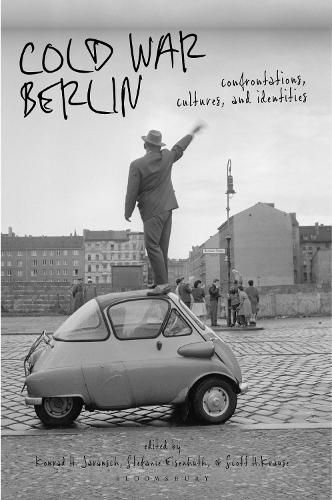Readings Newsletter
Become a Readings Member to make your shopping experience even easier.
Sign in or sign up for free!
You’re not far away from qualifying for FREE standard shipping within Australia
You’ve qualified for FREE standard shipping within Australia
The cart is loading…






No other European city can claim to have experienced such division and togetherness as Berlin. This volume of essays attempts to address the question of the peculiar character of divided Berlin during the years of the Cold War - and connects the history of this embattled city with the over-all East-West conflict. A wide range of transatlantic contributors addresses Berlin as a global focal point of the Cold War, and also assess the geopolitical peculiarity of the city and how citizens dealt with it in everyday life - exploring not just the implications of division, but also the continuing entanglements and mutual perceptions which resulted from Berlin’s unique status. Finally, the book then asks how these experiences were and are told: What identities did the division create, what narratives did it produce and how do they shape today’s debates? Has the city managed to forge a common memory culture out of a divided past?
An essential contribution to the study of Berlin in the 20th century, and the effects - global and local - of the Cold War on a city.
$9.00 standard shipping within Australia
FREE standard shipping within Australia for orders over $100.00
Express & International shipping calculated at checkout
No other European city can claim to have experienced such division and togetherness as Berlin. This volume of essays attempts to address the question of the peculiar character of divided Berlin during the years of the Cold War - and connects the history of this embattled city with the over-all East-West conflict. A wide range of transatlantic contributors addresses Berlin as a global focal point of the Cold War, and also assess the geopolitical peculiarity of the city and how citizens dealt with it in everyday life - exploring not just the implications of division, but also the continuing entanglements and mutual perceptions which resulted from Berlin’s unique status. Finally, the book then asks how these experiences were and are told: What identities did the division create, what narratives did it produce and how do they shape today’s debates? Has the city managed to forge a common memory culture out of a divided past?
An essential contribution to the study of Berlin in the 20th century, and the effects - global and local - of the Cold War on a city.